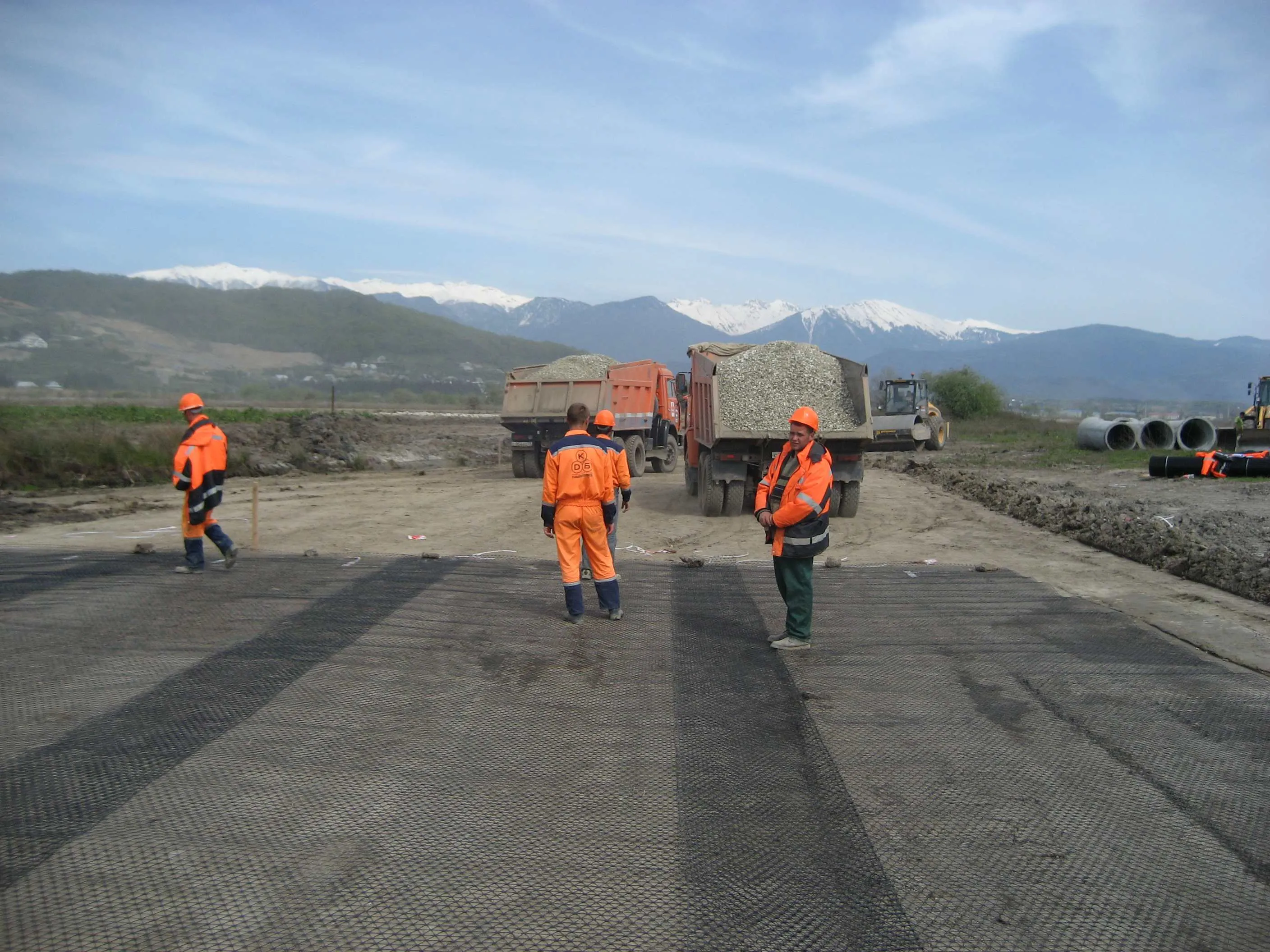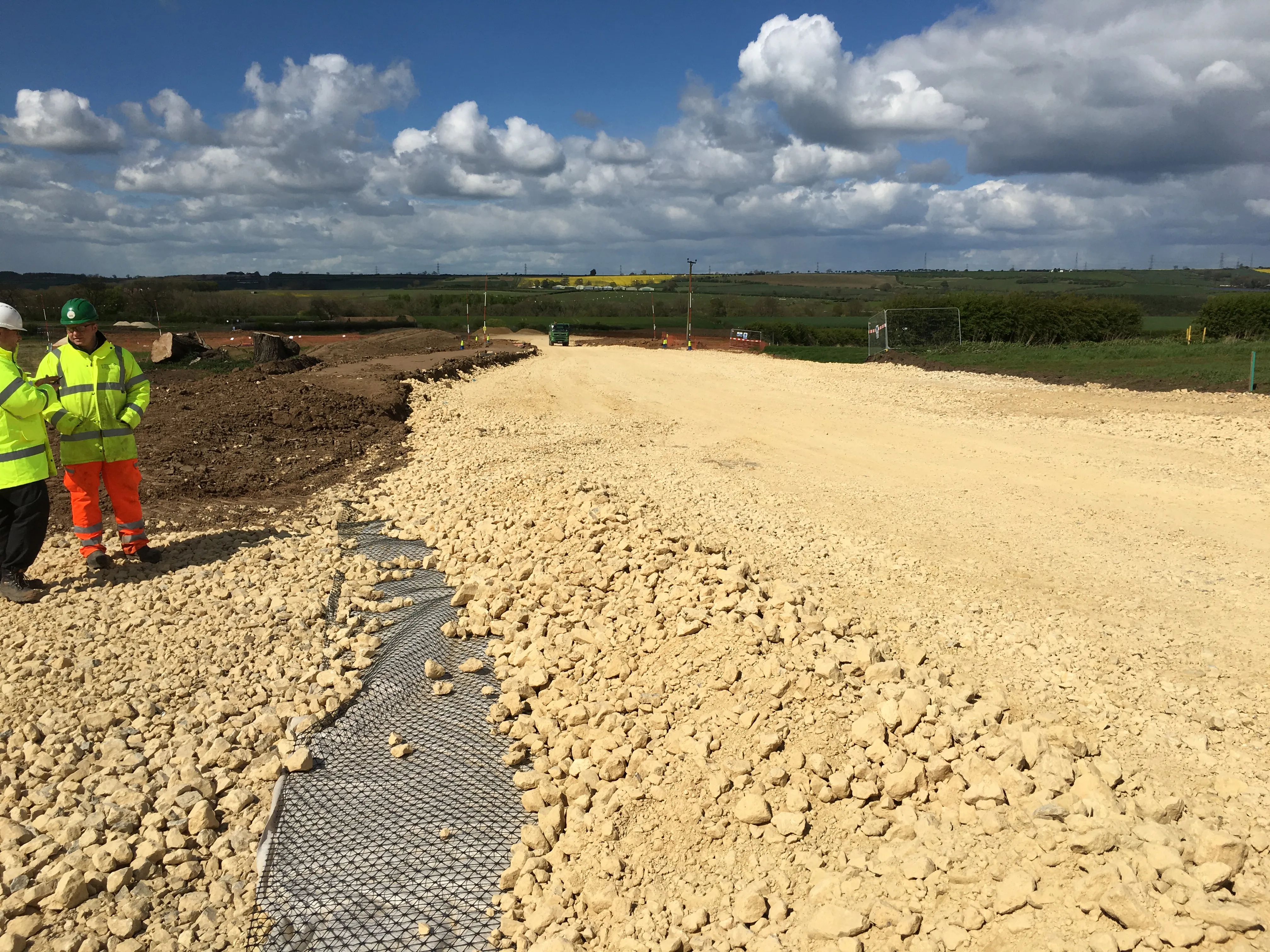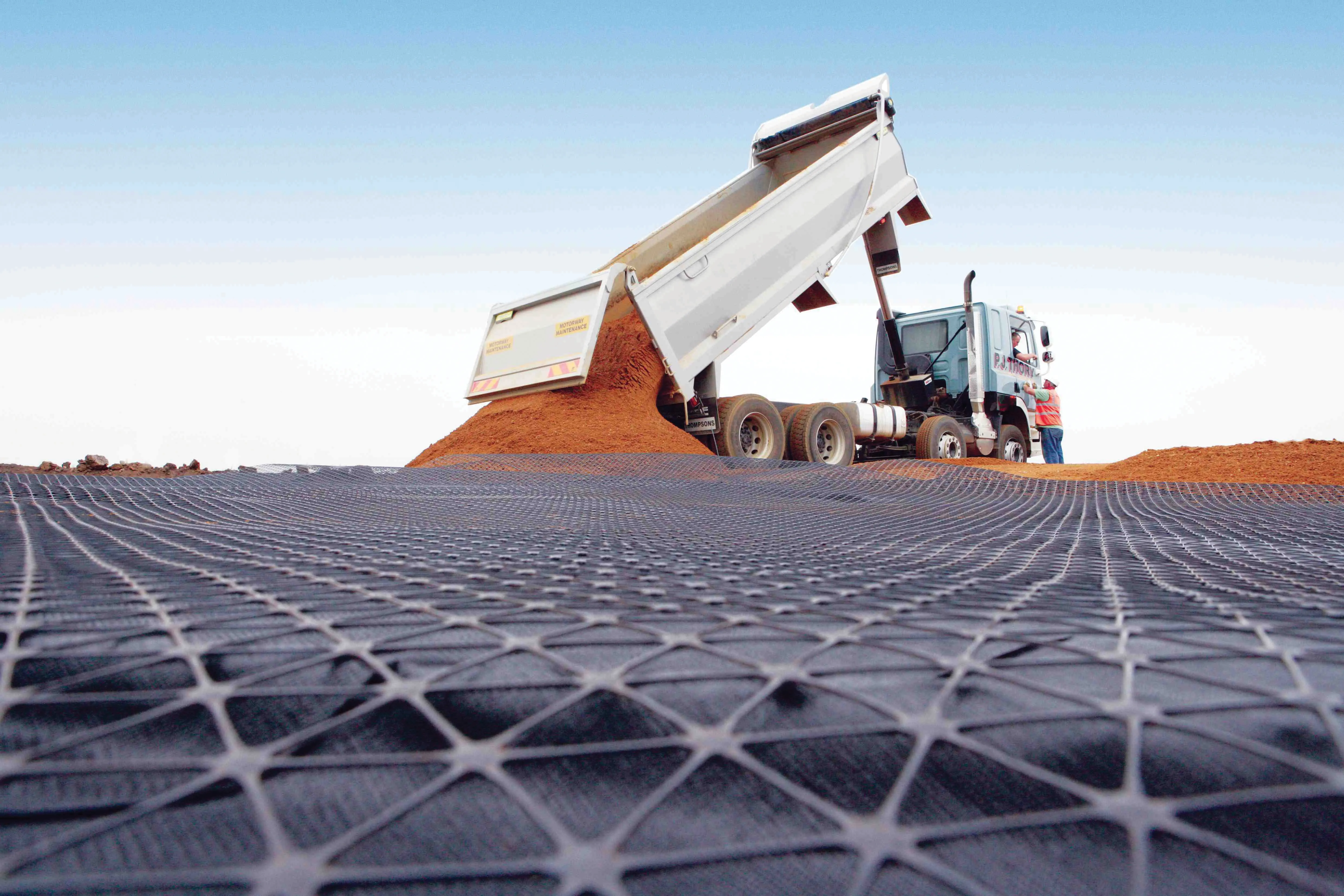Tensar International is building a manufacturing plant in Russia. Tensar is the majority shareholder in the joint venture, with remaining investment coming from Russian partners. Don Meltzer, chief executive of US parent company, Tensar Corporation; and Bob Vevoda, chief operating officer and president of Tensar International; met with their Russian JV partners in London earlier this month to finalise the funding and construction schedule.
November 20, 2012
Read time: 3 mins

Tensar is the majority shareholder in the joint venture, with remaining investment coming from Russian partners. Don Meltzer, chief executive of US parent company, Tensar Corporation; and Bob Vevoda, chief operating officer and president of Tensar International; met with their Russian JV partners in London earlier this month to finalise the funding and construction schedule.
Vevoda said: “Our sales into Russia have expanded over recent years. We are seeing growth in demand for our products in transportation projects, utilities and the energy sector. Forecasts indicate that strong infrastructure growth will continue for the next decade and beyond making it clear to us that a plant in Russia was a necessity. On top of that, the establishment of the Customs Union scrapping interstate tariffs and the likely expansion of the Union beyond Russia, Belarus and Kazakhstan, further increased the attraction of a manufacturing facility located in the region.”
The innovative construction techniques said to be made possible by Tensar’s products and expertise have been, according to the firm, well received by specifiers in Russia and Central Asia. With such a massive infrastructure program ahead, Tensar believes clients are open to technology solutions that are proven to increase construction efficiency.
Tensar has six strategically located manufacturing facilities around the world which, the company says, helps satisfy the global demand for its geogrid products, especially from emerging economies keen to expand their infrastructure. Vevoda added: “World-wide manufacturing operations are a vital element of our global positioning and with the robust global demand for Tensar products, particularly our newest technology TriAx geogrids, this new facility coupled with the joint venture, enables us to enhance our product offering in this significant market and elsewhere.
Located on the southern shore of the Gulf of Finland, the new plant will be sited in the Peterhof area of St Petersburg. Due to its role in Russia’s engineering surge of the 1700s, Peterhof is regarded as a historically significant town and is a world heritage site.
Plans for the multi-million dollar project are well under way, with manufacturing equipment on order and a factory building obtained and currently undergoing a complete refurbishment. The plant is set to begin production by January 2014.
The plant will produce Tensar’s TriAx geogrid range, used to stabilise road
construction over soft soils and to optimise pavement design for roads, ports and airfields. It will also produce Tensar’s high strength range of geogrids, with major applications in reinforced soil structures including retaining walls and embankments.
David Cashman, Tensar’s business manager for Russia is keen to see completion of the new plant. He said: “With our Russian Distribution partner and JV Partner, Grand Massar, we have been supplying Tensar geogrids into Russia for over 15 years and have completed some great projects in roads, rail and the energy sector.
Right now our products are being installed into the new Grand Prix track and infrastructure works for the Winter Olympic venues in Sochi. We need this new plant, located in Russia to meet demand there and our expanding business in Central Asia.”







